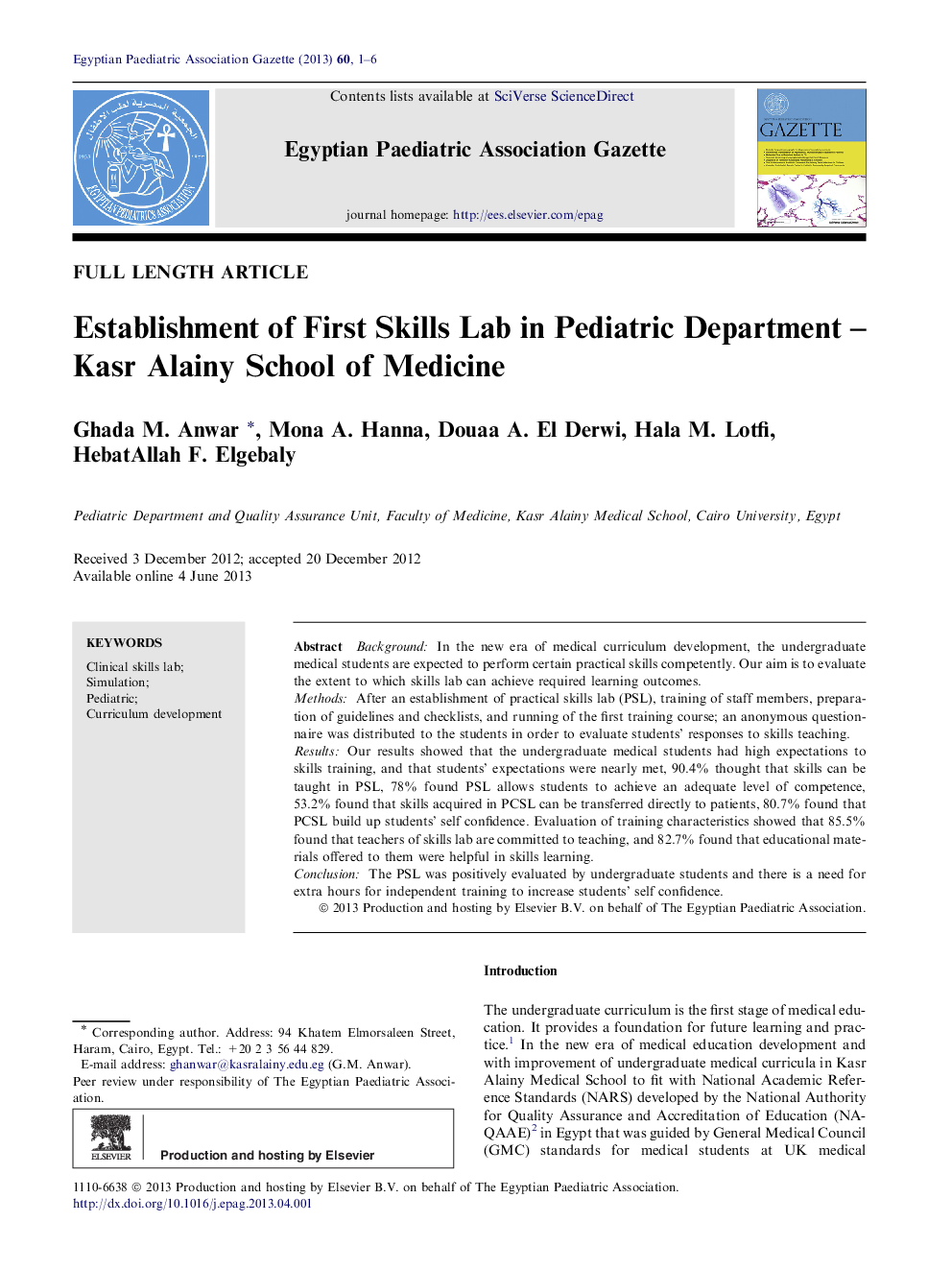| Article ID | Journal | Published Year | Pages | File Type |
|---|---|---|---|---|
| 4153631 | Egyptian Pediatric Association Gazette | 2013 | 6 Pages |
BackgroundIn the new era of medical curriculum development, the undergraduate medical students are expected to perform certain practical skills competently. Our aim is to evaluate the extent to which skills lab can achieve required learning outcomes.MethodsAfter an establishment of practical skills lab (PSL), training of staff members, preparation of guidelines and checklists, and running of the first training course; an anonymous questionnaire was distributed to the students in order to evaluate students’ responses to skills teaching.ResultsOur results showed that the undergraduate medical students had high expectations to skills training, and that students’ expectations were nearly met, 90.4% thought that skills can be taught in PSL, 78% found PSL allows students to achieve an adequate level of competence, 53.2% found that skills acquired in PCSL can be transferred directly to patients, 80.7% found that PCSL build up students’ self confidence. Evaluation of training characteristics showed that 85.5% found that teachers of skills lab are committed to teaching, and 82.7% found that educational materials offered to them were helpful in skills learning.ConclusionThe PSL was positively evaluated by undergraduate students and there is a need for extra hours for independent training to increase students’ self confidence.
